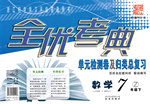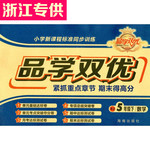题目内容
My father brought home a sailboat when I was ten, and almost each Sunday in summers we would go sailing. Dad was quite skilled in sailing, but not good at __. As for me, I __ both well before twelve because of living close to Lake Ontario.
The last time Dad and I set sail together is really __ . It was a perfect weekend after I graduated from university. I came home and __ Dad to go sailing. Out we set soon on the __ __ lake. Dad hadn’t sailed for years, but everything well with the tiller(舵柄)in his hands.
When we were in the middle of the lake, a wind came all of a sudden. The boat was _ _ violently(猛烈地). Dad was always at his best in any __, but at this moment he __ .
“John! __ !” he shouted in a trembling(颤抖的) voice, with the tiller still in his hands.
In my memory he could fix any __. He was the one I always __ __ for strength and security. Before I could respond, a _ of water got into the boat. I rushed to the tiller it was too late. Anther huge wall of water the boat in a minute. We were thrown into the water, and Dad was struggling aimlessly. At that moment, I felt fiercely of him.
I swam to Dad and assisted him in climbing onto the hull(船壳)of the boat. Upon sitting on the hull, Dad was still a little frightened. “It’s all right, Dad. We are __ __ now,” I comforted him.
That was the first time Dad had counted on me in a moment of emergency(紧急情况). More importantly, I found it was my turn to start __ of my father.
1.A. boating B. running C. swimming D. teaching
2.A. enjoyed B. desired C. hated D. learned
3.A. unforgivable B. unforgettable C. cheerful D. regretful
4.A. sent B. ordered C. invited D. allowed
5.A. calm B. icy C. stormy D. thundery
6.A. finished B. went C. seemed D. sounded
7.A. strong B. gentle C. cold D. hot
8.A. pulled B. broken C. sailed D. hit
9.A. danger B. place C. sport D. job
10.A. suffered B. fell C. froze D. forgot
11.A. Look B. Help C. Run D. Jump
12.A. problem B. relationship C. machine D. boat
13.A. turned to B. lived with C. argued with D. objected to
14.A. fountain B. stream C. shower D. wave
15.A. before B. or C. after D. but
16.A. turned on B. turned into C. turned over D. turned up
17.A. ashamed B. protective C. tired D. afraid
18.A. hopelessly B. quickly C. slowly D. helplessly
19.A. painful B. dangerous C. safe D. tired
20.A. catching sight B. getting fond C. getting tired D. taking care
1.C
2.D
3.B
4.C
5.A
6.B
7.A
8.D
9.A
10.C
11.B
12.A
13.A
14.D
15.D
16.C
17.B
18.B
19.C
20.D
【解析】
试题分析:这是一个发人深思的故事。父亲一直都是孩子的伟岸的形象,但是一次外出活动中,“我”突然发现父亲也有害怕的时候,在帮助了父亲的同时,感到自己长大了应该回报父亲照顾父亲了。体现了浓浓的父子之情,感人至深。
1.考查动名词辨析和对语境的理解。由倒数第三段倒数第二句We were thrown into the water, and Dad was struggling aimlessly.以及倒数第二段第一句I swam to Dad可以看出,父亲虽然擅长划船,但是不会游泳,故选C。A. boating划船;B. running跑;C. swimming游泳;D. teaching教书。故选C。
2.考查动词辨析和对语境的理解。A. enjoyed喜欢;B. desired渴望;C. hated不喜欢;D. learned学习。虽然父亲不擅长游泳,但是我住在安大略湖湖边,因此十二岁之前我就学会了划船和游泳,故选D。
3.考查形容词辨析和对语境的理解。 A. unforgivable不可原谅的;B. unforgettable难忘的;C. cheerful 令人振奋的;D. regretful后悔的。由下文描述的那次非凡的划船经历可以看出,经历是难以忘怀的,故选B。
4.考查动词辨析和对语境的理解。A. sent派遣;B. ordered命令;C. invited邀请;D. allowed允许。我毕业回家后邀请父亲去划船,其余选项不符合对父亲的态度,故选C。
5.考查形容词辨析和对语境的理解。A. calm平静的;B. icy结冰的;C. stormy暴风雨的;猛烈的;D. thundery将要打雷似的。由下一段描述突遭风暴可以看出,刚开始在湖上划船时是风平浪静的,故选A。
6.考查动词辨析和对语境的理解。 A. finished结束;B. went走,进展;C. seemed似乎;D. sounded听起来。虽然父亲好几年没有划船了,但是他对舵柄还是掌控自如。Everything goes well一切进展顺利, 故选B。
7.考查形容词辨析和对语境的理解。A. strong强壮的;B. gentle温和的;C. cold冷的;D. hot热的。后面讲述了我们的船被掀翻了,可以看出来风力很大,故选A。
8.考查动词辨析和对语境的理解。A. pulled拉;B. broken坏;C. sailed航行;D. hit击打,袭击。风暴突袭,剧烈地碰撞着小船,故选D。
9.考查名词辨析和对语境的理解。A. danger危险;B. place地方;C. sport运动;D. job工作。父亲以前在任何危境中总能处在最佳状态,应对自如,故选A。
10.考查动词辨析和对语境的理解。A. suffered遭受;B. fell落下;C. froze冻住,呆住了,手足无措;D. forgot忘记。但是这一次他却手足无措了,故选C。
11.考查动词辨析和对语境的理解。 A. Look看;B. Help帮助;C. Run跑;D. Jump跳。父亲手里拿着舵柄却不知如何是好,因此向我呼救,由后面颤抖着声音对我大喊可以看出选B。
12.考查名词辨析和对语境的理解。 A. problem问题;B. relationship关系;C. machine机器; D. boat船。在我记忆中,父亲能解决任何问题,故选A。
13.考查动词短语辨析和对语境的理解。 A. turned to转向;B. lived with和……一起生活;C. argued with争论;D. objected to反对。他是一个我可以去寻求力量与安全感的人,turn to sb. for...向某人寻求……,故选A。
14.考查名词辨析和对语境的理解。 A. fountain喷泉;B. stream小溪;C. shower淋浴;D. wave海浪。我还没来得及回答,一股水浪冲进了小船。故选D。
15.考查连词辨析和对语境的理解。 A. before在……之前;B. or或者;C. after在……之后;D. but 但是。我冲过去拿舵柄,但是已经太晚了来不及了。表示转折意义,故选D。
16.考查动词短语辨析和对语境的理解。 A. turned on打开;B. turned into变成;C. turned over翻转; D. turned up打开,调大。由后一句“我们被打落进水中”,可以看出前一句为“又一堵巨大的水墙把小船打翻了”。故选C。
17.考查形容词辨析和对语境的理解。A. ashamed感觉羞耻的;B. protective给予保护的;C. tired感觉劳累的;D. afraid害怕的。看到父亲在水中无助的挣扎,我感觉要给予保护了。故选B。
18.考查副词辨析和对语境的理解。 A. hopelessly无助地;B. quickly很快地;C. slowly慢慢地; D. helplessly无助地。我迅速游到父亲身边并帮他爬到船壳上去,故选B。
19.考查形容词辨析和对语境的理解。A. painful痛苦的;B. dangerous危险的;C. safe安全的;;D. tired累的。 我安慰父亲“我们现在安全了。”,故选C。
20.考查动词短语辨析和对语境的理解。A. catching sight of看见;B. getting fond of喜欢;C. getting tired of疲倦;D. taking care of照料。更重要的是,我发觉该轮到我来照料父亲了。故选D。
考点:故事类短文阅读。

 全优考典单元检测卷及归类总复习系列答案
全优考典单元检测卷及归类总复习系列答案 品学双优卷系列答案
品学双优卷系列答案 小学期末冲刺100分系列答案
小学期末冲刺100分系列答案When I was about 12, I had an enemy, a girl who liked to point out my shortcomings. Week by week her list grew: I was very thin, I wasn’t a good student, I talked too much, I was too proud, and so on. I tried to hear all this as long as I could. At last, I became very angry. I ran to my father with tears in my eyes.
He listened to me quietly, then he asked. “Are the things she says true or not? Janet, didn’t you ever wonder what you’re really like ? Well, you now have that girl’s opinion. Go and make a list of everything she said and mark the points that are true. Pay no attention to the other things she said.”
I did as he told me. To my great surprise, I discovered that about half the things were true. Some of them I couldn’t change (like being very thin), but a good number I could—and suddenly I wanted to change. For the first time I go to fairly clear picture of myself.
I brought the list back to Daddy. He refused to take it.“That’s just for you,” he said.“You know better than anyone else the truth about yourself. But you have to learn to listen, not just close your ears in anger and feeling hurt. When something said about you is true, you’ll find it will be of help to you. Our world is full of people who think they know your duty. Don’t shut your ears. Listen to them all, but hear the truth and do what you know is the right thing to do.”
Daddy’s advice has returned to me at many important moments. In my life, I’ve never had a better piece of advice.
【小题1】What did the father do after he had heard his daughter’s complaint?
| A.He told her not to pay any attention to what her “enemy” had said. |
| B.He criticized (批评) her and told her to overcome her shortcomings. |
| C.He told her to write down all that her “enemy” had said about her and pay attention only to the things that were true. |
| D.He refused to take the list and have a look at it. |
| A.Because he believed that what her daughter’s “enemy” said was mostly true. |
| B.Because he had been so angry with his daughter’s shortcomings that he wanted to show this by keeping silent for a while. |
| C.Because he knew that his daughter would not listen to him at that moment. |
| D.Because he wasn’t quite sure which girl was telling the truth. |
| A.Not an Enemy, but the Best Friend |
| B.The Best Advice I’ve Ever Had |
| C.My Father |
| D.My Childhood |
I first went to Harrow in the summer term. The school had the biggest swimming pool I had ever seen. It was a good joke to come up behind a naked boy, and push him into the pool. I made quite a habit of this with boys of my own size or less.
One day I saw a boy wrapped in a towel on the side of the pool. He was no bigger than I was, so I thought him a fair game. Coming secretly behind, I pushed him in, holding on to his towel so that it would not get wet, I was surprised to see an angry face come out from the water, and a being of great strength masking its way by face strokes (猛力地划)to the shore. I fled, but in vain. He overtook me, seized me violently, and threw me into the deepest part of the pool. I soon climbed out on the other side, and found myself surrounded by a crowd of younger boys.” Do you know what you have done?” they said, “It’s Amery; he is in Grade Six. He is champion at gym; he has got his football honor.”
I was frightened and felt ashamed. How could I tell his position when be was wrapped in a bath towel and so small.” He didn’t seem pleased at all, so I added in a most brilliant word,” My father, who is a great man, is also small.” At this be laughed, and after some general words about my rude behavior and how I had better be careful in the future, signified the incident was closed.
【小题1】The writer thought Amery” a fair game” because the boy .
| A.was of similar size |
| B.was fond of games |
| C.looked like an animal |
| D.was good at sports |
| A.he was laughed at by other boys |
| B.he played a joke on an outstanding athlete |
| C.Amery turned out to be in the same grade |
| D.he pushed Amery hard and hurt him |
| A.challenged Amery | B.threatened Amery |
| C.admired his father | D.tried to please Amery |
| A.The writer could run faster than Amery. |
| B.Amery forgave the writer for his rude behavior. |
| C.The writer liked playing on boys of all sizes. |
| D.Amery was a student in Grade Four. |
 of the following can be the best for the passage?
of the following can be the best for the passage?